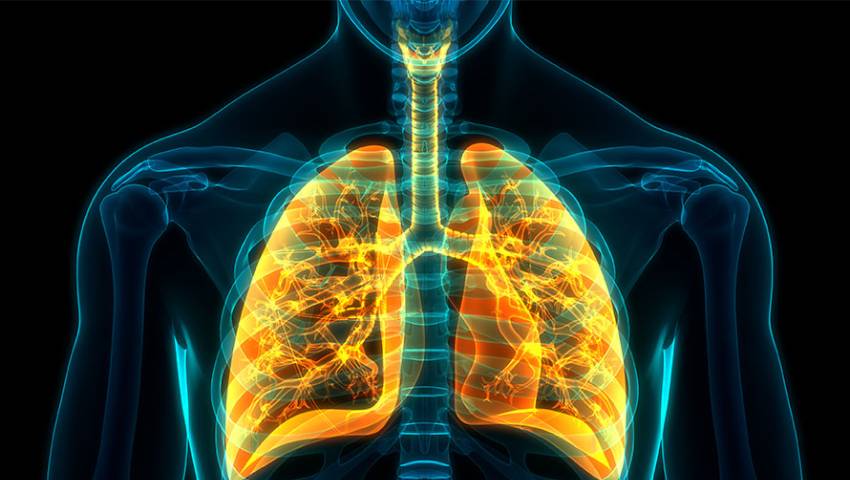
- 21/08/2024
- Dr. Pratik Patil
- 0 Comments
- Blog
Lung Cancer Screening Who Should Get Screened and Why?
Are you unsure if lung cancer screening is right for you? Lung cancer is one of the most prevalent and dangerous tumors worldwide. Early detection is crucial for improving survival rates, and lung cancer screening has become a vital tool in this endeavor. If you’re considering lung cancer screening or seeking more information about who should be screened and why? This blog post will explore lung cancer screening, who should consider it, and the potential benefits providing comprehensive details, with insights from Dr. Pratik Patil, a well-known cancer specialist in Pune.
Understanding Lung Cancer Screening:
Lung cancer screening is a medical procedure designed to detect lung cancer at its earliest stages, often before signs appear. The primary screening method is low-dose computed tomography (LDCT), which uses X-rays to create detailed images of the lungs. This technique is effective in identifying small nodules or tumors that may not yet be causing symptoms but could be indicative of early-stage cancer.
Who Should be screened for lung cancer?
Not everyone needs lung cancer screening. The decision to undergo screening should be based on individual risk factors and health history. According to Dr. Pratik Patil Here are the key groups of people who are typically recommended for lung cancer screening:
- Current or Former Smokers: The most significant risk factor for lung cancer is smoking. Screening is generally recommended for individuals who are current smokers or have quit smoking within the past 15 years.
- Age Criteria: Screening is usually advised for individuals between the ages of 50 and 80. This age range reflects the period when lung cancer is most likely to be detected and treated effectively.
- Smoking History: Individuals with a smoking history of 20 pack-years or more are considered high-risk. Pack years are calculated by multiplying the number of packs smoked per day by the number of years a person has smoked. For instance, smoking one pack per day for 20 years equals 20 pack-years.
- Additional Risk Factors: Apart from smoking, other factors that may increase the need for screening include a family history of lung cancer, exposure to certain environmental toxins, and a history of certain lung diseases.
If you need help determining your pack years or your ability to get screened, Dr. Pratik Patil- The Best Doctor For Lung Cancer Treatment in Pune is here to help you.
Why is Lung Cancer Screening Important?
Lung cancer screening is vital for several reasons:
- Early Detection: The primary benefit of screening is the potential for earlier detection of lung cancer. Noticing cancer at an early phase significantly improves the chances of successful treatment and survival. Early-stage lung cancer often includes a higher response to therapy options, including surgery, chemotherapy, and radiation.
- Reducing Mortality: Studies have shown that routine screening with LDCT can reduce lung cancer mortality by up to 20% among high-risk people. This reduction is attributed to the capability of screening to determine tumors before they progress to more advanced stages.
- Cost-Effectiveness: Although the cost of screening may seem high, the overall advantages in terms of earlier detection and reduced mortality usually outweigh the expenses. Screening can lead to earlier and potentially less expensive treatment options, ultimately improving patient outcomes and reducing long-term healthcare costs.
- Personalized Risk Assessment: Screening allows for a personalized approach to cancer prevention. By identifying individuals at higher risk, healthcare providers can offer tailored advice and interventions, including smoking cessation programs and lifestyle modifications.
The Screening Process for Lung Cancer:
The lung cancer screening process involves several steps:
- Initial Consultation: Before the screening, a healthcare provider will review your medical history, discuss your risk factors, and determine if screening is appropriate. Dr. Pratik Patil emphasizes the importance of a thorough assessment to ensure that screening is beneficial and necessary.
- Low-Dose CT Scan: If screening is recommended, you will undergo an LDCT scan. This procedure is quick, non-invasive, and involves minimal radiation exposure compared to conventional CT scans. During the scan, you will be asked to hold your breath briefly while the machine takes images of your lungs.
- Follow-Up: After the screening, the results will be reviewed by a radiologist and discussed with you by your healthcare provider. If abnormalities are detected, further diagnostic tests may be required to determine if they are cancerous or benign.
- Management Plan: If a diagnosis of lung cancer is confirmed, a comprehensive management plan will be developed, which may include additional imaging, biopsies, and consultations with oncology specialists. Dr. Pratik Patil is known for his expertise in creating tailored treatment plans based on individual patient needs.
- Lung cancer screening is a valuable tool in the fight against lung cancer, especially for individuals at higher risk due to smoking and other factors. Dr. Pratik Patil, a leading lung cancer specialist in Pune, emphasizes the importance of personalized screening plans based on individual risk profiles. If you are at high risk for lung cancer or experiencing symptoms, it is crucial to consult a specialist. Dr. Pratik Patil offers consultations for lung cancer screening and treatment in Pune. To schedule an appointment, you can contact us at his office directly or visit a reputable medical institute where he practices. Taking proactive steps towards screening can make a significant difference in your journey towards better health.
